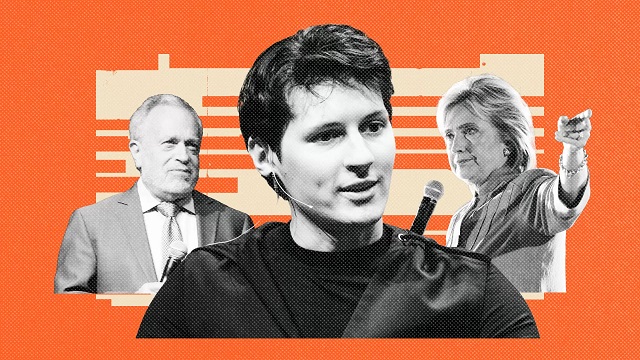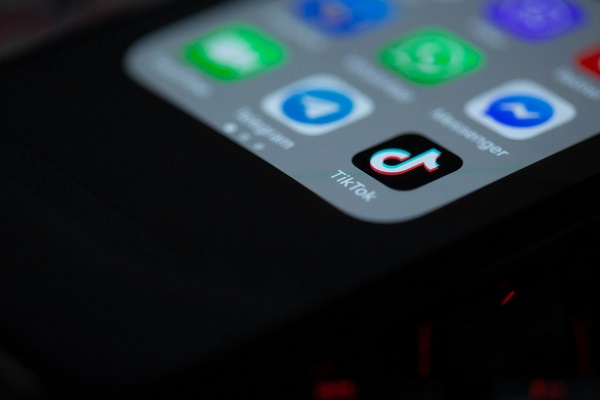Internet
The Soft Totalitarianism of the Political Class

From Reason
Officials pursue an anti-liberty agenda through unofficial pressure and foreign regulators.
It’s no secret that governments around the world are chiseling away at people’s liberties. Rights advocates document a nearly two decade decline in freedom. Civil liberties activists warn of a worldwide free speech recession. And while American restrictions on government power hold the line better than pale equivalents elsewhere, the political class seems determined to end-run those protections and impose creeping totalitarianism by leveraging the authority of allies in other countries.
“Obrigado Brasil!” Keith Ellison, Minnesota’s attorney general, wrote this week to thank that country’s authoritarian Supreme Court for its recent ban on the X social media platform.
The court demanded X censor political views it called “disinformation” and appoint a new legal representative to receive court orders—after threatening the previous one with arrest. Importantly, the ban threatens ordinary Brazilians with hefty fines if they evade the prohibition on the social media network. Nevertheless, demand for blockade-piercing VPNs surged in Brazil after the court decision.
Ellison serves alongside Minnesota’s Gov. Tim Walz, who is the Democratic candidate for vice president and has falsely claimed “there’s no guarantee to free speech on misinformation or hate speech.” He’s also not the only prominent politician to have a real hate-on for X and its CEO, Elon Musk.
“Regulators around the world should threaten Musk with arrest if he doesn’t stop disseminating lies and hate on X,” Robert Reich, Labor Secretary in the Clinton administration and one-time adviser to President Barack Obama, huffed in The Guardian. He cited the recent arrest in France of Telegram CEO Pavel Durov as a precedent. “Like Musk, Durov has styled himself as a free speech absolutist,” Reich sniffed.
But the animus doesn’t stop with X, Telegram, and their bosses.
“For too long, tech platforms have amplified disinformation and extremism with no accountability,” former presidential candidate Hillary Clinton claimed in 2022. “The EU is poised to do something about it. I urge our transatlantic allies to push the Digital Services Act across the finish line and bolster global democracy before it’s too late.”
Leveraging Foreign Authoritarianism for Domestic Purposes
Why would a former U.S. presidential candidate cheerlead for European speech regulations?
“The Digital Services Act will essentially oblige Big Tech to act as a privatized censor on behalf of governments,” Jacob Mchangama, founder of the Danish think tank Justitia and executive director of The Future of Free Speech, warned in 2022. “The European policies do not apply in the U.S., but given the size of the European market and the risk of legal liability, it will be tempting and financially wise for U.S.-based tech companies to skew their global content moderation policies even more toward a European approach to protect their bottom lines and streamline their global standards.”
Now in effect, the law is used to squeeze online speech, including as an end-run around U.S. protections for expression. It’s not the only overseas bypass of U.S. law, either.
Federal Trade Commission Chair Lina “Khan can’t get Congress to pass her antitrust agenda and is losing in U.S. courts, so now she’s leaning on foreign governments to do the anti-business work for her,” The Wall Street Journal editorial board noted last year about Khan’s reliance on European regulators.
Behind-the-Scenes Pressure for Censorship
But attempts to impose control and stifle dissent in the absence of legal authorization or in defiance of constitutional protections also occur here at home. Days after Telegram CEO Durov’s arrest in Paris, Meta CEO Mark Zuckerberg confirmed what had already been revealed by the Twitter and Facebook
“Senior officials from the Biden administration, including the White House, repeatedly pressured our teams for months to censor certain COVID-19 content, including humor and satire,” Zuckerberg told the House Judiciary Committee. He also admitted to suppressing reports about Hunter Biden’s laptop and its incriminating contents under pressure from the FBI.
That implicates not only incumbent President Joe Biden, but also Vice President Kamala Harris, the Democratic candidate for president. Harris has complained in the past that social media companies are “speaking to millions and millions of people without any level of oversight or regulation.”
Oversight, it seems, is now applied through back-channel pressure, and regulation by governments in countries that lack serious protections for free speech. The result is to endanger the role of the United States as a haven for free speech and other liberties in a world growing ever-more authoritarian.
The Political Class Embraces an Increasingly Authoritarian World
“Global freedom declined for the 18th consecutive year in 2023. The breadth and depth of the deterioration were extensive,” Freedom House cautioned in its 2024 annual report. “Political rights and civil liberties were diminished in 52 countries, while only 21 countries made improvements.”
“Today, we are witnessing the dawn of a free-speech recession,” Justitia’s Mchangama mourned two years ago. “Liberal democracies, rather than constituting a counterweight to the authoritarian onslaught, are themselves contributing to the free-speech recession.”
This erosion of protections for free speech and other rights occurs with the encouragement of American officials who want more control over our lives but have been (partly) stymied by American protections for liberty. In a world of global platforms and international travel, these officials are applying extra-legal pressure and relying on overseas friends to punish people for activities that are legal in the U.S.
Readers will notice that most if not all these officials are Democrats. Much ink has been spilled in recent years—rightly—about the authoritarian drift of the Republican Party. GOP vice presidential hopeful J.D. Vance wants to punish ideological opponents and advocates that his allies “seize the administrative state for our own purposes” and that they “seize the assets of the Ford Foundation, tax their assets, and give it to the people who’ve had their lives destroyed by the radical open borders agenda.”
But as illiberalism rises across the political spectrum, Democrats are leapfrogging authoritarianism to embrace a soft totalitarianism enforced by unofficial pressure and foreign allies subject to minimal restraints on their power. They ignore legal constraints and display contempt for this country’s protections for liberty in their quest to leave no refuge for dissent.
If liberty has a future in this country, it will be despite the best efforts of the political class.
|
|
|
Censorship Industrial Complex
Welcome to Britain, Where Critical WhatsApp Messages Are a Police Matter

By
“It was just unfathomable to me that things had escalated to this degree,”
“We’d never used abusive or threatening language, even in private.”
|
You’d think that in Britain, the worst thing that could happen to you after sending a few critical WhatsApp messages would be a passive-aggressive reply or, at most, a snooty whisper campaign. What you probably wouldn’t expect is to have six police officers show up on your doorstep like they’re hunting down a cartel. But that’s precisely what happened to Maxie Allen and Rosalind Levine — two parents whose great offense was asking some mildly inconvenient questions about how their daughter’s school planned to replace its retiring principal.
This is not an episode of Black Mirror. This is Borehamwood, Hertfordshire, 2025. And the parents in question—Maxie Allen, a Times Radio producer, and Rosalind Levine, 46, a mother of two—had the gall to inquire, via WhatsApp no less, whether Cowley Hill Primary School was being entirely above board in appointing a new principal.
What happened next should make everyone in Britain pause and consider just how overreaching their government has become. Because in the time it takes to send a meme about the school’s bake sale, you too could be staring down the barrel of a “malicious communications” charge.
The trouble started in May, shortly after the school’s principal retired. Instead of the usual round of polite emails, clumsy PowerPoints, and dreary Q&A sessions, there was… silence. Maxie Allen, who had once served as a school governor—so presumably knows his way around a budget meeting—asked the unthinkable: when was the recruitment process going to be opened up?
A fair question, right? Not in Borehamwood, apparently. The school responded not with answers, but with a sort of preemptive nuclear strike.
Jackie Spriggs, the chair of governors, issued a public warning about “inflammatory and defamatory” social media posts and hinted at disciplinary action for those who dared to cause “disharmony.” One imagines this word being uttered in the tone of a Bond villain stroking a white cat.
|
 |
Parents Allen and Levine were questioned by police over their WhatsApp messages. |
|
For the crime of “casting aspersions,” Allen and Levine were promptly banned from the school premises. That meant no parents’ evening, no Christmas concert, no chance to speak face-to-face about the specific needs of their daughter Sascha, who—just to add to the bleakness of it all—has epilepsy and is registered disabled.
So what do you do when the school shuts its doors in your face? You send emails. Lots of them. You try to get answers. And if that fails, you might—just might—vent a little on WhatsApp.
But apparently, that was enough to earn the label of harassers. Not in the figurative, overly sensitive, “Karen’s upset again” sense. No, this was the actual, legal, possibly-prison kind of harassment.
Then came January 29. Rosalind was at home sorting toys for charity—presumably a heinous act in today’s climate—when she opened the door to what can only be described as a low-budget reboot of Line of Duty. Six officers. Two cars. A van. All to arrest two middle-aged parents whose biggest vice appears to be stubborn curiosity.
“I saw six police officers standing there,” she said. “My first thought was that Sascha was dead.”
Instead, it was the prelude to an 11-hour ordeal in a police cell. Eleven hours. That’s enough time to commit actual crimes, be tried, be sentenced, and still get home in time for MasterChef.
Allen called the experience “dystopian,” and, for once, the word isn’t hyperbole. “It was just unfathomable to me that things had escalated to this degree,” he said. “We’d never used abusive or threatening language, even in private.”
Worse still, they were never even told which communications were being investigated. It’s like being detained by police for “vibes.”
One of the many delightful ironies here is that the school accused them of causing a “nuisance on school property,” despite the fact that neither of them had set foot on said property in six months.
Now, in the school’s defense—such as it is—they claim they went to the police because the sheer volume of correspondence and social media posts had become “upsetting.” Which raises an important question: when did being “upsetting” become a police matter?
What we’re witnessing is not a breakdown in communication, but a full-blown bureaucratic tantrum. Instead of engaging with concerned parents, Cowley Hill’s leadership took the nuclear option: drag them out in cuffs and let the police deal with it.
Hertfordshire Constabulary, apparently mistaking Borehamwood for Basra, decided this was a perfectly normal use of resources. “The number of officers was necessary,” said a spokesman, “to secure electronic devices and care for children at the address.”
Right. Nothing says “childcare” like watching your mom get led away in handcuffs while your toddler hides in the corner, traumatized.
After five weeks—five weeks of real police time, in a country where burglaries are basically a form of inheritance transfer—the whole thing was quietly dropped. Insufficient evidence. No charges. Not even a slap on the wrist.
So here we are. A story about a couple who dared to question how a public school was run, and ended up locked in a cell, banned from the school play, and smeared with criminal accusations for trying to advocate for their disabled child.
This is Britain in 2025. A place where public institutions behave like paranoid cults and the police are deployed like private security firms for anyone with a bruised ego. All while the rest of the population is left wondering how many other WhatsApp groups are one message away from a dawn raid.
Because if this is what happens when you ask a few inconvenient questions, what’s next? Fingerprinting people for liking the wrong Facebook post? Tactical units sent in for sarcastic TripAdvisor reviews?
It’s a warning. Ask the wrong question, speak out of turn, and you too may get a visit from half the local police force.
|
|
|
|
Reclaim The Net values your free speech and privacy. Each issue we publish is a commitment to defend these critical rights, providing insights and actionable information to protect and promote liberty in the digital age.
Despite our wide readership, less than 0.2% of our readers contribute financially. With your support, we can do more than just continue; we can amplify voices that are often suppressed and spread the word about the urgent issues of censorship and surveillance. Consider making a modest donation — just $5, or whatever amount you can afford. Your contribution will empower us to reach more people, educate them about these pressing issues, and engage them in our collective cause. Thank you for considering a contribution. Each donation not only supports our operations but also strengthens our efforts to challenge injustices and advocate for those who cannot speak out. Thank you.
|
Business
Vice President Vance expects framework of TikTok deal by April 5

 MxM News
MxM News
Quick Hit:
Vice President JD Vance expects a framework agreement to resolve TikTok’s ownership by April 5, as the Biden-era law requiring its Chinese owner, ByteDance, to sell the app or face a ban looms. President Donald Trump had previously delayed enforcement of the law, allowing more time for negotiations. The White House is in discussions with multiple potential buyers to establish an American-owned version of the social media platform.
Key Details:
-
Vice President Vance stated that a high-level agreement will likely be reached that meets national security concerns while creating a U.S.-based TikTok enterprise.
-
President Trump signed an executive order in January, delaying the enforcement of a law requiring ByteDance to sell TikTok or face a ban.
-
The White House is engaged with four interested groups in potential acquisition talks.
Diving Deeper:
The fate of TikTok in the U.S. has been a subject of intense debate due to concerns over data security and its ties to the Chinese Communist Party through ByteDance. The law, originally passed under the Biden administration, sought to force the sale of the app due to fears that American user data could be accessed by the Chinese government. However, after taking office, President Trump extended the enforcement deadline by 75 days, giving room for negotiations.
Vice President Vance, speaking to NBC News aboard Air Force Two, expressed confidence that an agreement will be reached by April 5, though some details may still need to be finalized afterward. He and national security adviser Michael Waltz have been leading efforts to facilitate a sale that would address national security concerns while preserving TikTok’s massive American user base.
President Trump revealed last weekend that his administration is in talks with four different groups interested in acquiring the app. While the specifics of these negotiations remain undisclosed, the administration has made it clear that TikTok must operate as a distinct American entity to remain in the U.S. market.
As the deadline approaches, ByteDance has not publicly commented on the ongoing discussions. However, with bipartisan concerns over the influence of the Chinese Communist Party on U.S. technology platforms, the expectation is that any deal will include significant safeguards to prevent foreign interference in the app’s operations.
The coming weeks will determine whether a sale materializes or if further action will be needed to enforce the law. Either way, the Trump administration has signaled its commitment to ensuring that TikTok is no longer under the control of a hostile foreign adversary.
-

 Health2 days ago
Health2 days agoDr. Pierre Kory Exposes the Truth About the Texas ‘Measles Death’ Hoax
-

 Business1 day ago
Business1 day agoDOGE discovered $330M in Small Business loans awarded to children under 11
-

 COVID-191 day ago
COVID-191 day ago17-year-old died after taking COVID shot, but Ontario judge denies his family’s liability claim
-

 Economy2 days ago
Economy2 days agoSolar and Wind Power Are Expensive
-

 Business2 days ago
Business2 days agoWhy a domestic economy upgrade trumps diversification
-

 2025 Federal Election1 day ago
2025 Federal Election1 day agoThe High Cost Of Continued Western Canadian Alienation
-

 Business2 days ago
Business2 days agoAll party leaders must oppose April 1 alcohol tax hike
-

 Daily Caller1 day ago
Daily Caller1 day agoCover up of a Department of Energy Study Might Be The Biggest Stain On Biden Admin’s Legacy








